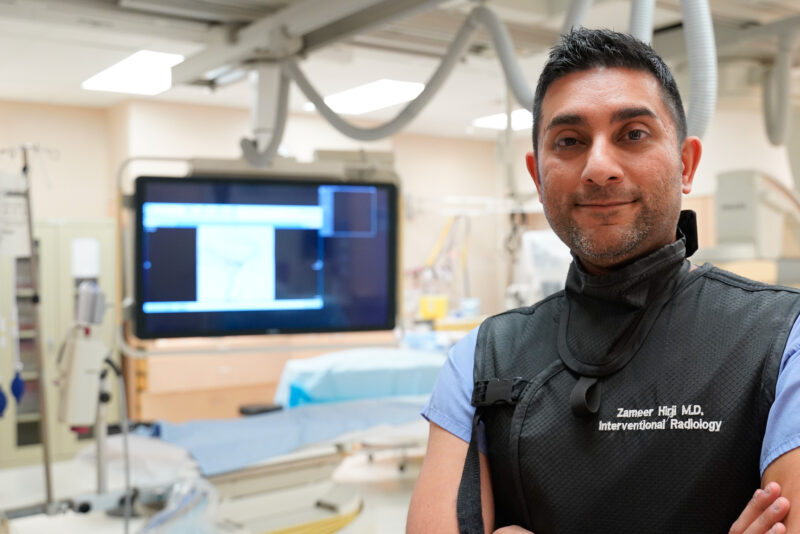
Pulmonary embolism (PE) and deep vein thrombosis (DVT) are serious and potentially life-threatening conditions that can have a dramatic negative impact on patient’s lives. PE occurs when a blood clot travels to the lungs and blocks an artery, while DVT is when a clot forms in a deep vein, usually in the legs. If untreated, DVT can lead to PE if the clot breaks off and moves to the lungs. Thanks to advancements in medical imaging and specialized treatments in Interventional Radiology (IR) at Royal Columbian Hospital (RCH), patients now have access to exceptional care for both conditions. With crucial support from the Royal Columbian Hospital Foundation, RCH continues to lead the way in treating venous diseases.
“Pulmonary embolism can be life-threatening as it increases the strain on the heart as well as restricts the ability of the lungs to oxygenate the blood,” explains Dr. Zameer Hirji, an Interventional Radiologist at RCH.
Early diagnosis and prompt treatment are critical in improving patient outcomes and can be life-saving. RCH is fortunate to have interventional radiologists, along with a dedicated team of IR nurses and technologists, available 24/7 for the entire Fraser Health Authority region. This round-the-clock availability has made it possible to provide urgent care to patients when they need it most.
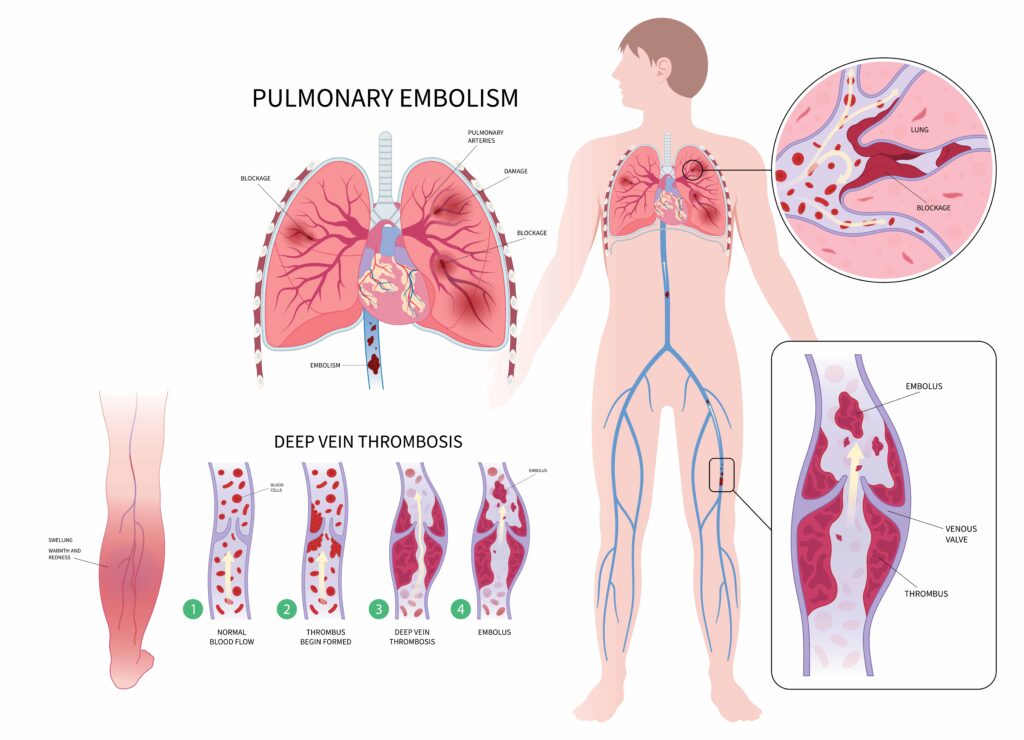
Diagram showing how a pulmonary embolism(PE) blocks blood flow to the lung. Royal Columbian Hospital’s advanced treatments help detect and treat this condition.
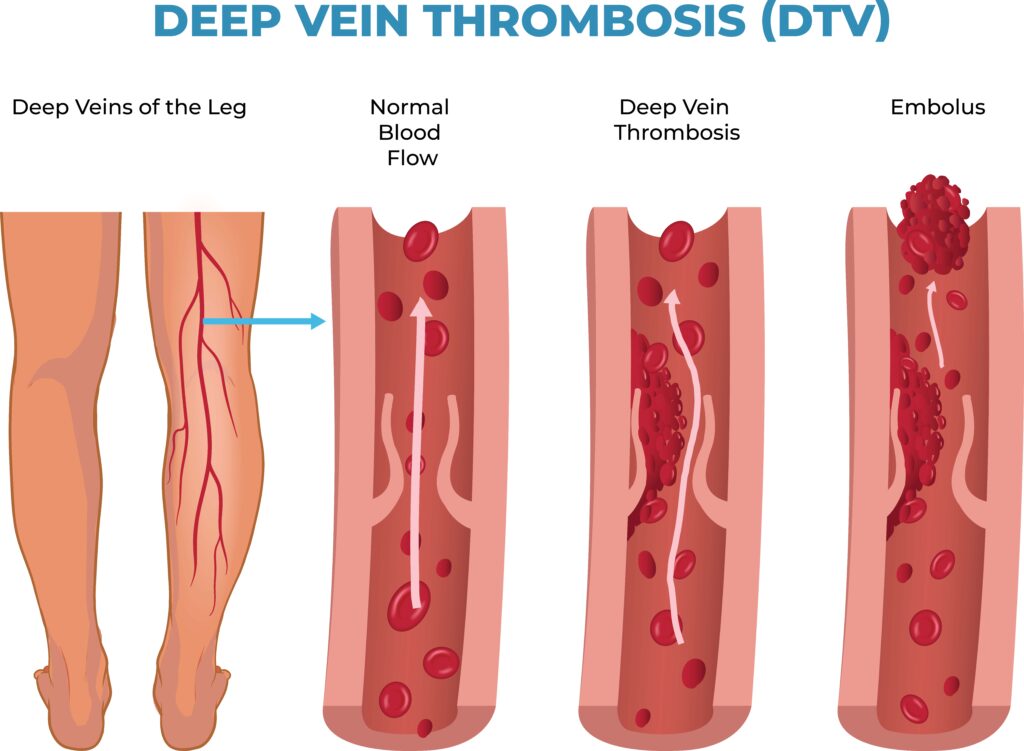
Diagram showing a deep vein thrombosis (DVT) blood clot, which can lead to serious complications if untreated.
RCH’s IR team relies on advanced CT imaging to detect PE and assess the strain on the heart, while ultrasound is typically used to diagnose DVT. The Foundation has played a key role in ensuring the hospital has access to these vital technologies.
“By providing funding for CT scanners and angiography imaging systems, the Foundation plays a major role in making sure that RCH can continue to play an important role in the detection, diagnosis and treatment of this life-threatening illness,” says Dr. Hirji.
Patients like Mike McDonald, the Regional Crown Counsel for the Fraser Region, have experienced firsthand the life-saving care provided at Royal Columbian Hospital. He was treated for deep vein thrombosis under the expert guidance of Dr. Hirji and his team.
“Thanks to the dedicated care staff, I went from not walking at all to feeling completely normal again. Dr. Hirji even walked with me to ensure my operation and recovery went smoothly,” says McDonald.
RCH’s team has now treated over a hundred patients with PE, witnessing firsthand the rapid improvements in patient outcomes. For high-risk or intermediate-high-risk PE patients, the IR team has the ability to remove the clot quickly using image-guided techniques. “We use special devices to remove the clot through a small incision, which leads to faster recovery and best patient care,” Dr. Hirji explains. “Patients that were otherwise dying or having prolonged ICU stays are now being discharged symptom-free in a day or two. They are now able to return to their normal activities which otherwise could have been impossible.”
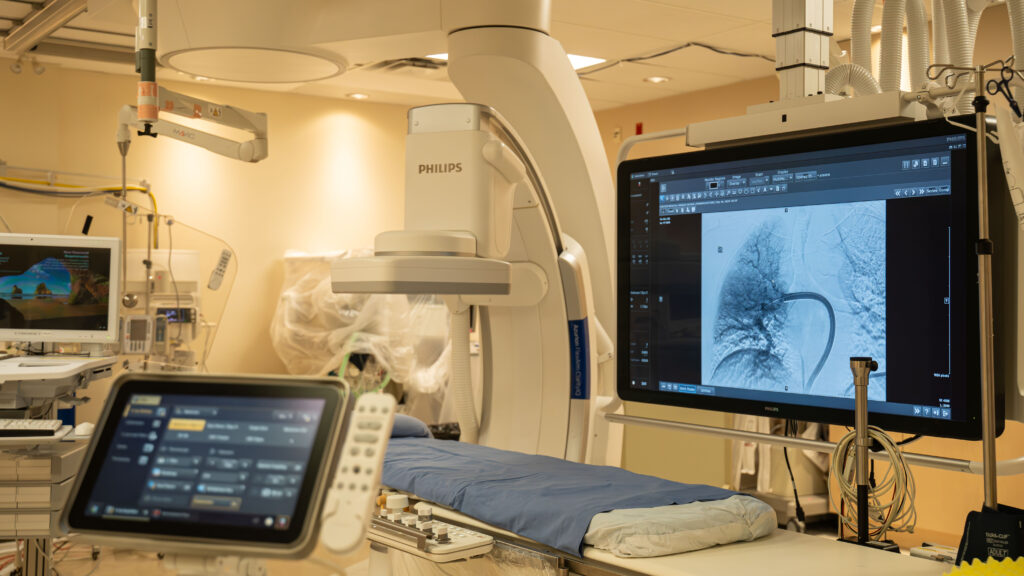
One of RCH’s Angio Suites in the Interventional Radiology Department.
This was echoed by another one of Dr. Hirji’s patients. For Joe Pinto, the speed and effectiveness of the treatment made all the difference. “The surgery was an immediate success, and it has now been over a year, and with the help of blood thinners I can live my life as normal with no symptoms,” says Pinto.
Through the continued support of the Foundation and the expertise of the medical teams, RCH remains at the forefront of both PE and DVT treatment, helping patients recover faster and return to their normal lives.
“I have so much admiration for the staff—everyone was fabulous, especially the IR team, who handled a tough situation with incredible care. I couldn’t have received better treatment and am particularly thankful and humbled to have been recommended for this procedure,” says McDonald.
Thanks to the care of our staff and donor support, RCH has become a national leader in PE and DVT care, with its expertise being sought after by hospitals across the country to help develop similar life-saving programs.
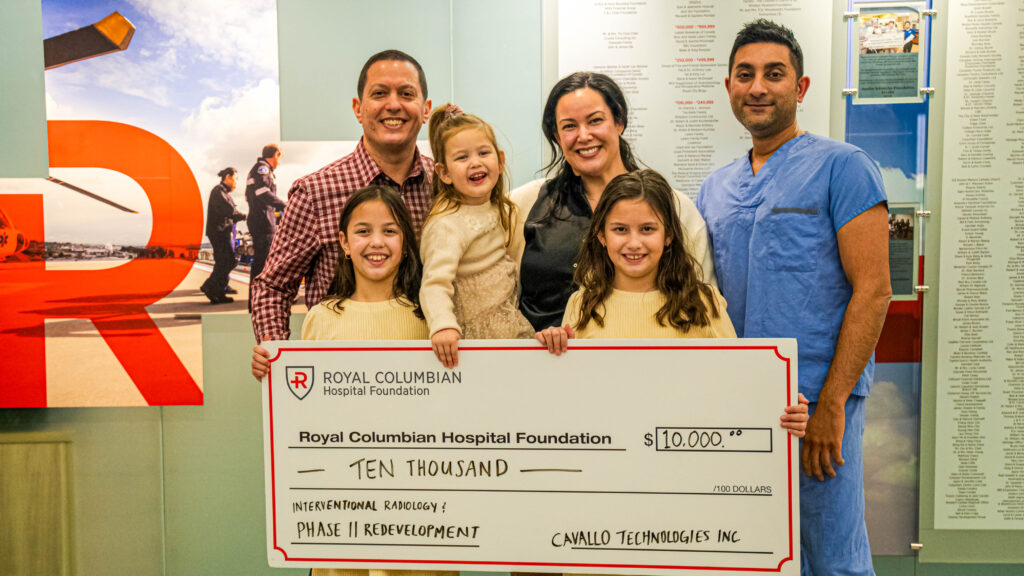
Dr. Zameer Hirji with RCHF donors the Cavallo family.
